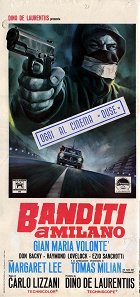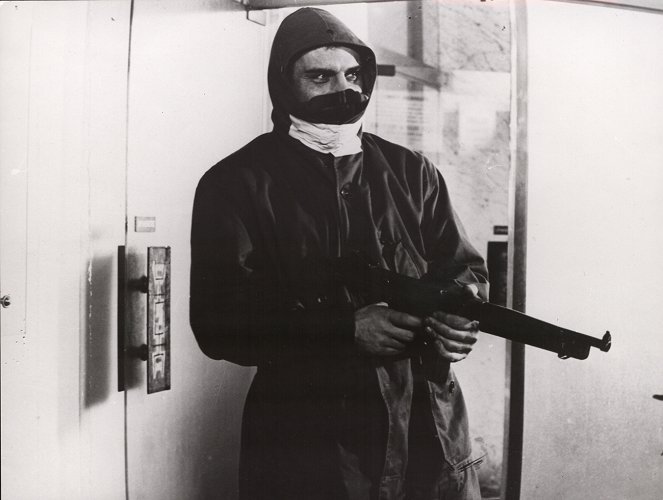Rendező:
Carlo LizzaniOperatőr:
Giuseppe RuzzoliniZeneszerző:
Riz OrtolaniSzereplők:
Gian Maria Volonté, Ray Lovelock, Tomas Milian, Peter Martell, Margaret Lee, Carla Gravina, Agostina Belli, Carlo Lizzani, María Rosa Sclauzero (több)Tartalmak(1)
Carlo Lizzani's action gangster drama based on authentic records in the crimes section describes bank robberies and street violence committed by a gang of criminals in 1967 Milano. The film combines a thrilling show with a documentary-like reconstruction that captures the phenomenon of modern bandits and its social roots. (Summer Film School)
(több)Recenziók (3)
One of the best representatives of the poliziotteschi genre. The semi-documentary form, which prevails especially in the first half, gives the plot a stamp of authenticity and personality that I have not noticed in any other film of this genre, so popular in the 1960s and 70s. At the beginning it's a kind of introduction of the main players, bandits and policemen, indifferently accompanied by a narrator's voice, followed by a roughly twenty-minute action inferno, with an excellent car chase, whose only weakness is its unrealistic nature, where bullets fired from close range rarely find their target. The ending, with Volonté's sinister laughter, is excellent. Gian Maria Volonté, by the way, was a chameleon of an actor who alternated such contradictory roles – gangsters, policemen and judges – with extraordinary ease and believability. On the other hand, the weakness of the film is clearly the character of the police commissioner, unbelievably played, a very power-hungry macho figure with a permanent cigarette in his mouth. Tomas Milian, an otherwise excellent actor, didn't do a very good job with this one.
()
This is one of many attempts to shoot a European gangster film in a somewhat different way. The Violent Four is still interesting mainly due to the animal-like performance of charismatic Gian Maria Volonté in the role of a ruthless gang boss and the wild, lengthy car chase through the streets of the city. This film has energy, a decent pace, and an interesting subject based on real events, but it is brought down by two problems. First, and above all, the film seems to consist of two radically different parts that do not go well together. The first roughly third is a quasi-documentary, with the police chief describing the crime situation to journalists, and the rest abandons this form and becomes a classic crime film. The second problem lies in the character of the police officer, who behaves like an affected, overdressed Hollywood star. He comes off as quite unsympathetic and does not provide a natural counterbalance to the criminal group. Overall impression: 65%.
()
The opening quarter-hour passage is already full of ideas and dynamics - the flashforward of the end of the robber gang is presented to us as a flashback of the narrator/detective, who also gives general information about the growth of crime in Milan in the form of interviews (e.g., in a cinematically interesting form of thought reconstructions of typological cases, which the detective only comments on with voice-overs, which are eventually supplemented by the actual reconstruction, which he is personally present at). The flashbacks (actually flashforwards) are inserted into this fast-paced introduction, and by following the panic of the Milanese, the viewer at first has no idea what storyline he or she will follow, until eventually the main story axis crystallizes. This story is already told in a conventional way, and it is interesting (whether you consider this a plus or a minus) that we do not return to the documentary style at all in the end. Dino De Laurentiis has always been able to raise money and here he indeed raised enough money, so the crowd and action scenes are certainly not embarrassing, quite the opposite.
()

